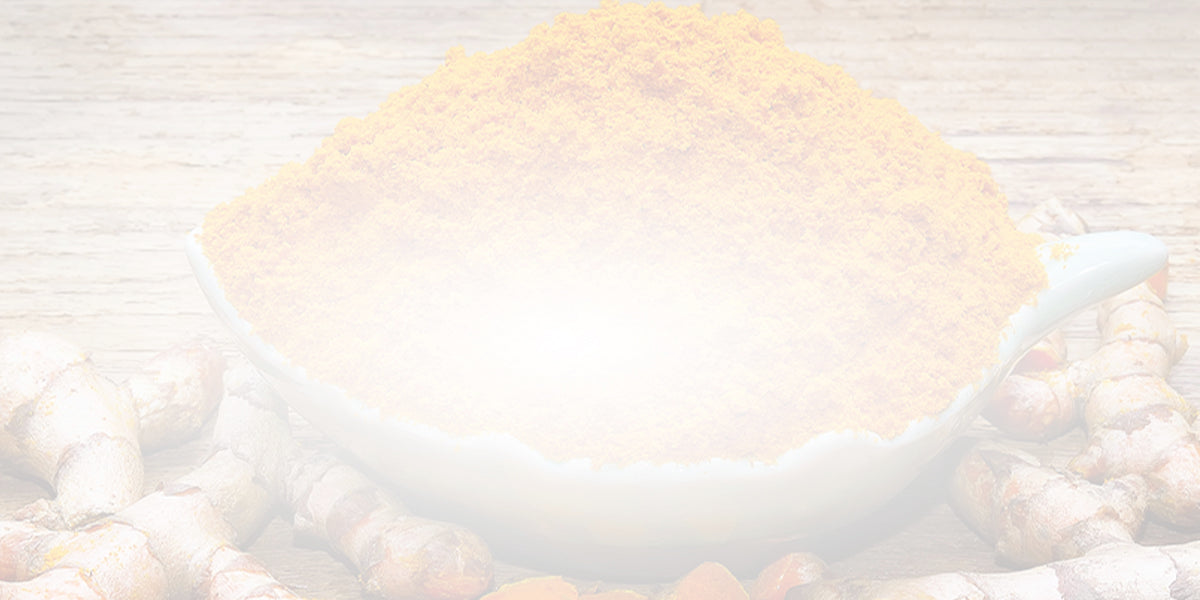
Several conditions make life as a human being more complicated or painful than it has any right to be. Irritable bowel syndrome is undoubtedly one of them, and there is no shortage of people who suffer from it. Unfortunately, methods that can be used to cope with the effects of IBS are less common than the people who have it, making it a hot topic amongst health experts. However, there might exist a correlation between treating IBS and the use of turmeric. Turmeric is an increasingly popular addition to the diets of those seeking to bolster their nutrition and reap a series of health benefits found within turmeric. With this article, we hope to clarify whether turmeric can effectively be used as a supplement to treat the effects of irritable bowel syndrome.
What is Irritable Bowel Syndrome?
If you are reading this article, the odds are good that you are all too familiar with what IBS is and its effects on the body. However, we believe that reviewing the facts is always the best place to start so we know exactly what we are dealing with. IBS is a disorder that targets and affects the body's large intestine with varying symptoms for those who have contracted it. However, among the more common symptoms of IBS are abdominal pain, bloating, and cramping while passing a bowel movement. You might even notice a change in the appearance of your stool and the frequency of your bowel movements overall.
Obviously, this level of pain when trying to perform an inescapable need of the human condition is far from pleasant. However, a physician might become essential if you start noticing sudden weight loss, rectal bleeding, unexplained vomiting, or persistent pain regardless of bowel movements. In addition, IBS might indicate underlying cancer that you do not want to leave unattended in these cases. Obviously, the symptoms might not exactly relate to your specific condition, but they are worth keeping on the lookout for if you want to prevent more significant issues from developing.

As for what causes IBS, there is no exact answer. No one knows what causes IBS, and only hypotheses on what contributes to the body's development of IBS are available. Currently, there are five factors thought to contribute to the development of IBS.
The first is that the muscles around the intestine contract to move food along as part of the digestive process. However, contractions that last longer than normal or are more forceful than they should be can cause gas buildup, bloating, and even diarrhea. Conversely, contractions that are weaker than they are meant to be can slow down the digestive process and leave you with a hard stool that causes pain.
The second factor ties into the nervous receiving erroneous signals from the brain that causes your body to overreact to poor digestion. This causes your system to overreact and produce the symptoms most commonly associated with IBS. The third has to do with microbes found in the intestines that might have changed in patients with IBS. The fourth factor is infections in the intestine that are caused by bacteria. The bacterial infection can wreak havoc on your body's ability to digest and process food. The fifth and final factor is simple stress. Believe it or not, individuals who are exposed to more stress or are stressed out more often are at higher risk for IBS.
There is also some information that has found a correlation between simple inflammation and IBS flares. Inflammation is a common immune response that is supposed to aid in the healing process but can sometimes go haywire and cause more issues than it solves. For example, in the case of IBS, it can cause the digestive tract to be constricted and induce bloating or difficulty with bowel movements. But more on this later.
However, even with all these factors, there remains no known cause of IBS in the human population. According to some research, certain foods can further trigger IBS, and young females with anxiety are at higher risk. Ultimately, IBS is painful and damaging to one's system and remains a medical mystery in terms of the cause. However, finding ways to treat it can be a little more flexible than you think despite this lack of understanding.
How Can Turmeric Help?
The most important part of understanding how turmeric can be of service to tending to your IBS is that turmeric is not what helps. Rather, it is a compound found within turmeric called curcumin. Curcumin is packed with all the nutrients that give turmeric its medicinal effect, leading to its spike in popularity following its discovery. In addition, there are a wide array of effects curcumin has to offer that can benefit your overall health that can either be independent issues or relate to larger underlying issues.
These underlying issues can include tending to the symptoms of IBS since some of the associated factors we have discussed are also affected by curcumin to mitigate their impact on your body. However, perhaps one of the most significant benefits that curcumin offers is one of its most shocking and correlates to the factors that affect the rise of IBS. Specifically, curcumin has been studied in relation to treating mental health. More accurately, curcumin has been studied for its effect on depression and anxiety. This is important because anxiety is one of the factors associated with IBS.

Back in 2015, an animal study was conducted that directly evaluated the effects of turmeric curcumin on mood disorders such as anxiety, stress, and depression. The results showed that curcumin increased the levels of mood-influencing neurotransmitters in the brains of the rats. Those rats showed reduced levels of stress and anxiety as a result. Additionally, the rats in the study also suffered from IBS, and the intake of curcumin improved the rats' intestinal system. The current hypothesis is that the neurotransmitters affected by curcumin also transmit to the intestines to process the digestive process. Given the additional theory that stress causes strain on the digestive process, curcumin's ability to minimize the effects helps make your digestive system more effective and prevent IBS flare-ups.
The next part of how curcumin can be an invaluable tool in combating IBS lies in the potential correlation between inflammation and IBS. In 2018, a study was conducted to determine whether inflammation plays a role in IBS and what role it plays. The study found that mucosal inflammation and neuroinflammation both potentially play a role in the development and effects of IBS on the body. With that in mind, curcumin can even prove to be an effective tool against this cause.
By its very nature, curcumin is an anti-inflammatory capable of addressing the entire body. While there are many conditions where inflammation is a driving force in the symptoms and progression of the disease, IBS being one of them, is actually good news. Since curcumin is an anti-inflammatory, using it to reduce the effects of inflammation caused by IBS might be able to free up any intestinal pressure that might be exacerbating the condition and inducing flare-ups. In essence, reduced inflammation goes a long way in keeping pressure off the parts of your anatomy afflicted by IBS.
How to Take Turmeric for IBS
Now that we know that turmeric, or rather curcumin, can be of use in combating IBS, the big question becomes how to introduce it to your system most effectively. The obvious answer is simply implementing turmeric into your diet and cooking in general. Turmeric has been used in Asian and Indian cuisine for a long time before discovering its medicinal qualities in the modern era. So, simply adding turmeric as a spice to your dinner can be an effective way to introduce the lauded spice to your system, especially if you want to make curry. The biggest issue with turmeric is that the amount of curcumin found in the root is extremely low and not easily absorbed by the human body. This makes eating the root directly or cooking with it a somewhat inadvisable option.
Fortunately, this low bioavailability is something that can be counteracted with a very simple addition. Believe it or not, black pepper is actually crucial to maximizing the benefits of turmeric's curcumin content. The reason is that black pepper has a compound called piperine known to enhance the bioavailability of some substances. So, by adding black pepper to turmeric, your body will have a much easier time absorbing the curcumin in the turmeric and processing it to reap the benefits.

However, even black pepper cannot correct the fact that the amount of curcumin in turmeric is minimal and abysmal at worst. So, consuming turmeric itself is highly inefficient for treating anything, including IBS. Fortunately, this has been remedied by modern science through the development of curcumin supplements that cultivate the curcumin found in turmeric and refine it into capsules that are essentially designed to provide all the health benefits. Unfortunately, the FDA does not regulate these supplements, so no official guidelines exist. Still, the supplements available are marketed and designed to ensure the right amount of curcumin is present.
In some cases, the supplements are made with piperine to ensure curcumin absorption is streamlined and the bioavailability issues are corrected.
Are There Risks?
Ordinarily, curcumin has virtually no side effects associated with it beyond the standard concerns for those who might have an allergy. Those with allergies might experience nausea or dizziness and possibly some skin irritation. However, these effects are still rare for those who consume turmeric. Unfortunately, IBS is a strange condition, and, in rare cases, turmeric can be known to exacerbate some of the symptoms rather than relieve them. Specifically, there have been scattered reports of abdominal discomfort, increased contractions, and even increased risk of bleeding for IBS patients who consumed turmeric. Again, however, those side effects are rare and can be avoided by taking your doses slowly and building the concentration up as you go.

While there are no official guidelines on recommended dosage, it is probably for the best that your daily intake does not go beyond 2,000mg. However, you should also consult with your primary care physician if you have an iron deficiency, diabetes, gallbladder issues, a bleeding disorder, kidney stones, gastroesophageal reflux disease, or are expecting to undergo surgery in the near future.
While some of these side effects might seem daunting, they are rare enough that they will likely have no impact on your personal experience. So, you should not let them dissuade you from using curcumin to mitigate your IBS symptoms and if you do have concerns, contact your physician to get their input.
The Finishing Touch
Turmeric is a root that has seen prominent use for decades, if not centuries following its initial discovery. It has been used in cooking, dyeing, and now for medicinal purposes. When treating irritable bowel syndrome, turmeric has begun to show promise in treating the overall condition rather than just the symptoms it produces. However, tending to what causes the flare-ups can be crucial in preventing the condition from running your life. The effects of turmeric can also be used to improve your overall health beyond treating the symptoms of IBS and can be an invaluable tool. The only real issue you will face is finding quality supplements to take advantage of the curcumin.

For that, we at NuVitality would like to be of assistance. We offer a turmeric curcumin supplement with piperine worked into the mix by default. We believe in providing quality supplements that maximize the benefits with minimal risk. So, if you are looking to make a difference in your health using turmeric, check out our website for a bottle of our curcumin supplements and take the next step to the healthy Nu you.
If you have any questions or concerns about turmeric, curcumin, or similar, please feel free to reach out and contact us at any time! We'd be more than happy to help out with any of those concerns you may have.






